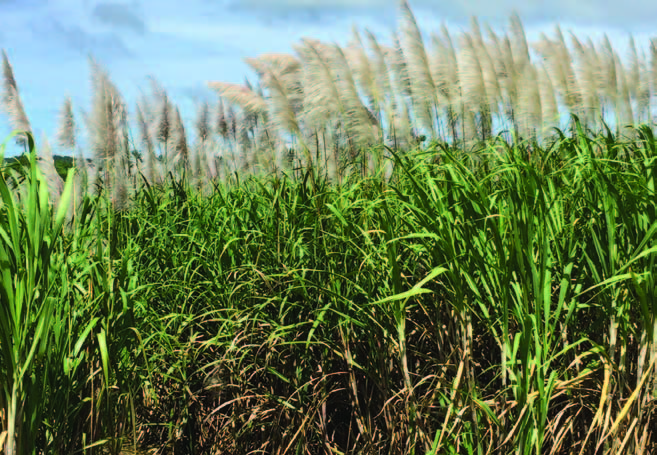Drink / Journal /
Sugar Cane Juice
A visit to St. Nicholas Abbey shows the cane is still ground using the 1950’s steam mill and they ferment and distill their world-class single cask rums directly from the Cane Syrup as opposed to Molasses.

When St. Nicholas Abbey shared their gourmet sugar cane syrup with us it opened up a lot of questions on the history of sugar cane juice/syrup and what makes it unique.
The cultivation of sugar cane is ancient, originating out of New Guinea about 10,000 years ago. From there it spread around the globe, most prominently in India. Around the 8th century, the Moors changed the way the world used sugarcane by learning the secret of processing the sugarcane into refined sugar from the Indians. The English speaking colonies shipped sugar back to Britain in a raw form as muscovado or straw sugar as refineries such as Taite & Lyle held monopolies of refining. Starting in Spain, the use and processing of sugar spread throughout Europe. Sugar refining varied in color, size, form, and molasses content based on the processing techniques used and the preferences of the region in which it was produced. Christopher Columbus introduced sugar to the New World with the European countries quickly introducing sugarcane cultivation into their colonies in South America and the Caribbean Island. In the last few centuries a large number of sugar refineries were build for the widespread production of refined sugar. The recent trend toward more whole foods and nutrition value of food has created a new demand for less refined sugar and sugar cane juice products. A fun aside, less than 50 years ago ‘white sugar’ was not available in Barbados and when families would travel they would bring back a few pounds for delicacies such as sponge cakes.
Cane Syrup is made from the cane juice obtained by crushing the sugar cane stalks. Cane juice contains only sugar and water but it is the right kind of sugar – unrefined. While most people prefer it neat, other may choose to enhance it with lemon juice, rock salt, or mint leaves.
Cane juice contains no simple sugar; hence, diabetics can enjoy it without any compromise to their health. Regular consumption of cane juice not only results in stable glucose levels but also helps in weight loss due to its low glycemic index.
Cane juice can be easily digested, it provides instant energy and hydration and is alkaline in nature to help fight against cancer. It contains several essential nutrients, such as calcium, potassium, iron, magnesium and phosphorous. Refined sugar is devoid of all nutrients and minerals.
All these benefits and it tastes great! We have been using St. Nicholas Abbey’s natural cane syrup on our morning oatmeal, as a sweetener in curries, in cocktails, on ice cream and our kids have enjoyed it on their pancakes! A visit to St. Nicholas Abbey shows the cane is still ground using the 1950’s steam mill and they ferment and distill their world-class single cask rums directly from the Cane Syrup as opposed to Molasses.